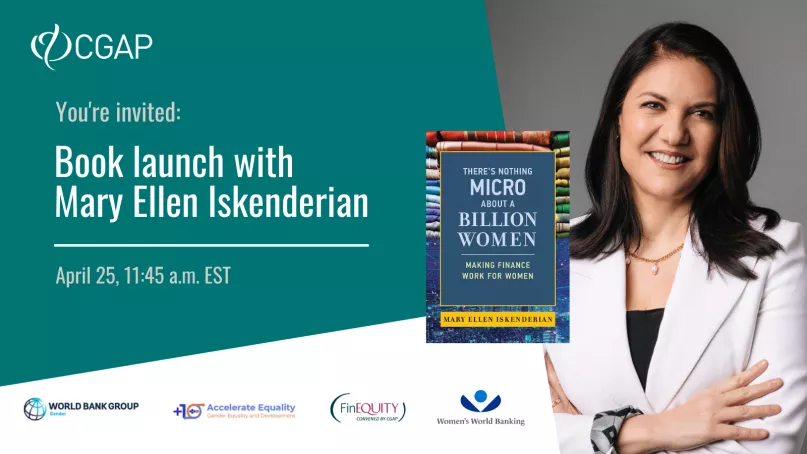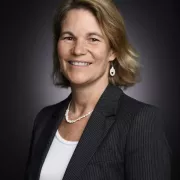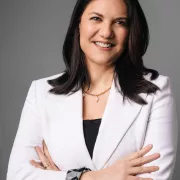Book Launch - There's Nothing Micro About a Billion Women: Making Finance Work for Women

Despite growing global efforts, nearly one billion women are excluded from the formal financial system and continue to face greater financial vulnerability than men. While microfinance has been hailed as an economic lifeline for women in developing countries, what will it really take to empower women and promote sustainable, inclusive economic growth?
Join the first launch event of the book, There’s Nothing Micro About a Billion Women: Making Finance Work for Women, authored by President and CEO of Women's World Banking Mary Ellen Iskenderian, to discuss the book and women’s financial inclusion more broadly. The event is organized by CGAP alongside contributing partners World Bank Group (Gender), Women’s World Banking, the World Bank Group’s Gender Equality initiative Accelerate Equality and FinEquity.
CGAP CEO Sophie Sirtaine will provide opening remarks, followed by a presentation by Mary Ellen Iskenderian and a Q&A session facilitated by Hana Brixi, World Bank Global Director for Gender.
About the book:
Nearly one billion women have been completely excluded from the formal financial system. Without even a bank account in their own names, they lack the basic services most of us take for granted—secure ways to save money, pay bills, and get credit. Exclusion from the formal financial system means they are economic outsiders, unable to benefit from, or contribute to, economic growth. Microfinance has been hailed as an economic lifeline for women in developing countries—but, as Mary Ellen Iskenderian shows in this book, it takes more than microloans to empower women and promote sustainable, inclusive economic growth.
Iskenderian, who leads a nonprofit that works to give women access to the financial system, argues that the banking industry should view these one billion “unbanked” women not as charity cases but as a business opportunity: a lucrative new market of small business owners, heads of households, and purchasers of financial products and services. Iskenderian shows how financial inclusion can be transformative for the lives of women in developing countries, describing, among other things, the informal moneylenders and savings clubs women have relied on, the need for both financial and digital literacy (and access) as mobile phones become a means of banking, and the importance of women's property rights. She goes on to make the business case for financial inclusion, exploring the ways that financial institutions are adapting to help women build wealth, access capital, and manage risks. Banks can do the right thing—and make money while doing so—and all of us can benefit.
About this event

Opening remarks: Sophie Sirtaine
Sophie Sirtaine, a Belgian national, is CGAP’s CEO. She is responsible for leading the CGAP operational team to develop, resource, and deliver CGAP’s 5-year strategy. She is also a member of CGAP’s Executive Committee. With over twenty years of experience in the World Bank, Sophie has held various positions including as Director of Strategy and Operations in the Independent Evaluation Group of the World Bank Group from 2016-2021 and as country director for Latin America and the Caribbean from 2013-2016. She also worked in South Asia, and the Europe and Central Asia regions; the Corporate Secretariat; and the Operations, Policy and Country Services Vice Presidency of the World Bank Group. Among others, she led the World Bank’s banking sector crisis response in several EU countries during the 2008-2009 global financial crisis. Sophie also worked in London in investment banking at JP Morgan and as an infrastructure economist for Halcrow Fox and Associates prior to joining the World Bank

Keynote address: Mary Ellen Iskenderian
Mary Ellen Iskenderian is President and CEO of Women's World Banking, a global nonprofit devoted to giving more low-income women access to financial tools and resources they need for both security and prosperity. Prior to Women’s World Banking, Mary Ellen worked for 17 years at the International Finance Corporation, the private sector arm of the World Bank. She had previously worked for the investment bank Lehman Brothers. Mary Ellen is a permanent member of the Council on Foreign Relations, as well as a member of the Women’s Forum of New York, and the UN’s Business and Sustainable Development Commission. A 2017 Rockefeller Foundation Bellagio Center Fellow, Mary Ellen holds an MBA from the Yale School of Management and a Bachelor of Science in International Economics from Georgetown University’s School of Foreign Service. Most recently, she was recognized in the Forbes 50 over 50: Investment list, which highlights female investors and financial leaders. Her upcoming book, There’s Nothing Micro About a Billion Women: Making Finance Work for Women will be published by MIT Press in March 2022.

Q&A Moderation: Hana Brixi
Hana Brixi leads a global effort to promote gender equality and women’s empowerment. She sets the overall direction for the World Bank Group’s Gender knowledge agenda, drives Bank-wide efforts for results in closing gender gaps, and fosters partnerships with public and private sector stakeholders toward innovations at scale. In her career, Ms. Brixi has contributed to advances in human development, public finance, and governance. As Manager of the Human Capital Project, she led a global effort to protect and invest in people with an emphasis on girls and women empowerment. Prior to this, she held managerial and leadership positions in the Social Protection & Jobs and Governance Global Practices and in the Middle East & North Africa, East Asia & Pacific, and Europe & Central Asia regions. Based in China during 2001-10, she also served as World Health Organization’s Manager and UNICEF Chief in China. Ms. Brixi has published articles in professional journals and written several books on economic development, including Trust, Voice and Incentives on service delivery and Government at Risk on fiscal management. She holds graduate degrees in physics and economic policy from Masaryk University and Princeton University, respectively.